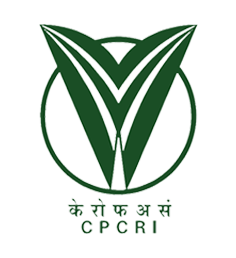Sl.No | PUBLICATIONS
Books: 6 Nos. Research papers in refereed journals: 182 Nos. Papers presented in Symposia/Conference: 68 Nos. Chapters in Books/Souvenir: 24 Nos. Technical Bulletins: 22 Nos. Extension pamphlets: 16 Nos. Contributions made in compilation/documentation: 54 Nos. Popular articles: 193 Nos.
|
| 1 | Shivanand Hongal, Maheswarappa,H.P., Gurav Shrishail Gopal, S.B. Gurumurthy, R. Raghunatha,K.S. Raghavendra, T.V. Sowjanya, Divya S. Bhat, Phatak Rahul, N. Ashoka.2023. Reflex of Different Pest Management Modules against Sucking Insect-pests and Pod Borer for the Safety of Beneficial Insects in Vegetable French Bean (Phaseolus vulgaris L.). Legume Research –An International Journal, 10.18805/LR-5068. |
| 2 | Shivanand Hongal, Maheswarappa H.P., Raghavendra K.S., Gurumurthy S.B., Divya Seetaram Bhat, Rahul Phatak and Gurav S. G. 2023. Deciphering the micro floral population and nutrient condition of cow dung and urine in order to develop natural farming inputs (Ganajeevamurtha and jeevamrutha). Eco. Env. & Cons. 29 (May Suppl. Issue). pp. (S147-S151). |
| 3 | Anand B Mastiholi, Sowmya, B, Maheswarappa, H. P., Venkatesh Dasar, Shantappa, T, Rudresh, D. L. and Patil, R. T. 2024. Organic and natural farming practices effect on microbial population, dehydrogenase activity and microbial biomass carbon in the rhizosphere soil of cabbage. Communications in Soil Science and Plant Analysis . https://doi.org/10.1080/00103624.2024.2303102. |
| 4 | Murali Gopal, Alka Gupta, Arunachalam, V., Maheswarappa, H. P., · George V. Thomas and · Jacob, P. M. 2022. Autochthonous nutrient recycling driven by soil microbiota could be sustaining high coconut productivity in Lakshadweep Islands sans external fertilizer application. World Journal of Microbiology and Biotechnology, 38:213 https://doi.org/10.1007/s11274-022-03373-7. |
| 5 | Shilpa, K. S., Minimol, J. S., Gavas Rakesh, Suma, B., Jiji Joseph, Maheswarappa, H. P., Panchami, P. S. 2022. Deciphering the role of polyphenol in defence mechanism against tea mosquito bug (Helopeltis theivora Waterhouse.) in cocoa ( Theobroma cocoa L.). PLOS ONE https://doi.org/10.1371/journal.pone.0271432 October 14, 2022. |
| 6 | Umesh Sajjan, Manjunath Hubballi, Abhay K. Pandey,· Devappa, V. and Maheswarappa, H. P . 2024. Characterizations of Ganoderma species causing basal stem rot disease in coconut tree. 3 Biotech, 14:104. https://doi.org/10.1007/s13205-023-03872- w. |
| 7 | Anand B. Mastiholi, Sowmya, B., Maheswarappa,H.P. Shruti P. Gondi, Shantappa, T., Rudresh, D. L. and Gopali , J. B. 2023. Organic and natural farming improve microbial diversity and dehydrogenase activity in clusterbean-tomato cropping sequence. Archives of Agronomy and Soil Science , 69:15, 3705-3716, DOI: 10.1080/03650340.2023.2273899. |
| 8 | Anand B. Mastiholi., Suhasini Chikkalaki, Venkatesh Dasar, H.P. Maheswarappa, Sajiv Duradundi, T. Shantappa, Arunkumar Bavidoddi and B. Sowmya, 2022, Studies on Growth, yield and soil fertility status in Cluster bean ( Cyamopsis tetragonoloba (L.) Taub) cv. Pusa Navbahar under Natural farming practices in comparison with conventional farming. Legume Research, DOI: 10.18805/LR-4997. |
| 9 | Ravi Bhat, Surekha Rajkumar, Subramanian Periasamy, Selvamani Veeramuthu, Arivalagan Manivannan and Maheswarappa, H.P. 2023. Harvesting of tender coconuts improves yields and profitability of coconut farming in India. The Journal of Horticultural Science and Biotechnology. DOI: 10.1080/14620316.2023.2272266. |
| 10 | Bhoomika H.R., Hegde M.R. and Maheswarappa H.P. 2023. Productivity and carbon sequestration potential of arecanut cultivars. Indian J. Hortic. 80(4): 372-376. |
| 11 | Chalapathi Rao, N. B. V., Nischala, A., Ramanandam, G. and Maheswarappa, H. P. 2018. Biological suppression of coconut black headed caterpillar Opisina arenosella outbreak in East Godavari district of Andhra Pradesh – eco friendly technology. Current Science, 115(8): 1588-1594. |
| 12 | Sumitha, S., Maheswarappa, H.P., Basavaraju,T.B. Prashanth, M. and Swetha. 2020. Potential coconut (Cocos nucifera ) hybrids developed using Gangabondam (GBGD) as maternal parent for yield and quality for southern dry tract of Karnataka (India). Indian Journal of Agricultural Sciences ,90 (8): 1467–73. |
| 13 | Shinde, V. V., Maheswarappa, H. P., Ghavale, S. L., Sumita, S., Wankhede, S. M. and Haldankar, P. M. 2020. Productivity and carbon sequestration potential of coconut-based cropping system as influenced by integrated nutrient management practices. Journal of Plantation Crops, 48(2):103-110. |
| 14 | Maheswarappa, H.P. and Krishnakumar, V. 2019. An overview on water management in coconut (Cocos nucifera ). Indian Journal of Agronomy, 64 (4): 431-439. |
| 15 | Naveen Kumar, K.S. and Maheswarappa, H.P. 2019. Carbon sequestration potential of coconut based cropping systems under integrated nutrient management practices. Journal of Plantation crops, 47(2) 107-114. |
| 16 | Manjunath Hubballi, Maheswarappa, H. P., Siddappa, R and Chandrashekar, G.S. 2019. Biological control agents for the management of basal stem rot disease in coconut. J. Mycol Pl. , 49(1) 89-96. |
| 17 | Nath, J. C., Deka, K.K., Maheswarappa, H.P. and Sumitha, S. 2019. System productivity enhancement in coconut (Cocos nucifera ) garden by intercropping with flower crops in Assam. Indian Journal of Agricultural Sciences, 89(11): 1842–5. |
| 18 | Maheswarappa, H. P., Subramanian, P and Geetha Kumari, A. 2017. Influence of organic nutrient management practices for noni ( citrifolia ) when grown as an intercrop in coconut garden. Indian Journal of Agricultural Sciences , 87(9): 1155-7. |
| 19 | Malhotra, S.K., Maheswarappa, H.P., Selvamani, V. and Chowdappa, P. 2017. Diagnosis and management of soil fertility constraints in coconut (Cocos nucifera ): A review. Indian Journal of Agricultural Sciences, 87(6):711-26 |
| 20 | Bhagya, H.P., Maheswarappa, H.P., Surekha and Ravi Bhat. 2017. Carbon sequestration potential in coconut-based cropping systems. Indian J. Hort. , 74(1): 1-5. DOI: 10.5958/0974-0112.2017.00004.4. |
| 21 | Naveen Kumar, K.S., Maheswarappa, H.P. and Basavaraju, T.B. 2017. Productivity and economic benefits of coconut based vegetable cropping systems under central dry zone of Karnataka. Journal of Plantation Crops, 45 (1): 49-56. doi:10.19071/jpc.2017.v45.i1.3237. |
| 22 | Sanjeevreddi, G Reddi., Maheswarappa, H.P., Chandravathi, B. and Patil, D.R. 2016. Effect of fertigation on yield and economics of oil palm. J. Farm Sci ., 29(2):200-202. |
| 23 | Naveen Kumar, K. S., Maheswarappa, H. P. and Basavaraju, T. B. 2016. Effect of integrated nutrient management practices on growth and yield of vegetable crops grown as intercrops in coconut garden. Indian Journal of Agricultural Science 86 (10): 1361-5. |
| 24 | Maheshwarappa, H.P., Krishnakumar, V., Alka Gupta and Geetha Kumari, A. 2016. Influence of organic sources of nutrients on vanilla (Vanilla planifolia) as an intercrop in coconut garden. Journal of Plantation Crops, 44(2): 85-89. doi:10.19071/jpc.2016.v44.i2.3102. |
| 25 | Snehalatharani, A., Maheswarappa, H.P., Devappa, V. and Malhotra, S.K. 2016. Status of Coconut Basal Stem Rot disease in India – A Review. Indian Journal of Agricultural Science, 86 (12): 1519–29. |
| 26 | Maheswarappa, H. P. George V. Thomas, Alka Gupta, Ravi Bhat and Palaniswami, C. 2014. Productivity and nutrient status of coconut (Cocos nucifera ) as influenced by integrated nutrient management with vermicomposted coconut leaves. Indian Journal of Agronomy, 59 (3): 455-459. |
| 27 | Thiruvarassan S, and Maheswarappa, H.P. 2014. Performance of medicinal and aromatic plants as intercrops in coconut garden. Journal of Plantation Crops , 42(2): 238-240 |
| 28 | Maheswararappa, H.P., Dhanapal, R., Subramanian, P. and Palaniswami, C. 2013. Evaluation of coconut based high density multi-species cropping system under organic and integrated nutrient management. Journal of Plantation Crops, 41 (2): 130-135. |
| 29 | Srinivasan, V., Maheswarappa, H.P. and Rattan Lal. 2012. Long term effects of toposoil depth and amendments on particulate and non particulate carbon fractions in a Miamian soil of Central Ohio. Soil and Tillage Research , 121: 10-17. |
| 30 | Maheswarappa, H.P., Krishna Kumar, V., Srinivasa Reddy, D.V., Dhanapal, R. and Zachariah, John, T. 2012. Performance of different varieties/hybrids of black pepper ( Piper nigrum L.) as mixed crop in coconut garden. Journal of Plantation Crops 40 (2): 82-88. |
| 31 | Maheswarappa, H.P., Srinivasan, V. And Rattan Lal. 2011. Carbon Footprint and Sustainability of Agricultural Production Systems in India. Journal of Crop Improvement ; 25 (4): 303-322. |
| 32 | Krishnakumar, V., Maheswarappa, H.P., Jayasekhar, S. and Shanavas, M. 2011. Economic evaluation of high density multispecies cropping system in root (wilt) disease affected coconut (Cocos nucifera ) area in Kerala. Journal of Plantation Crops 39 (1) 125-130. |
| 33 | Maheswarappa, H.P., George V. Thomas, Ravi Bhat, Palaniswami, C. and Jayasekhar, S. 2011. Impact of inorganic fertilizer substitutions by vermicomposted coconut leaves on productivity and economics of coconut. Journal of Plantation Crops 39 (1) 30-34. |
| 34 | Krishnakumar, V. and Maheswarappa, H. P. 2010. Integrated nutrient management for root (wilt) diseased coconut (Cocos nucifera ) palms. & J. agri. Sci. 80 (5): 394-398. |
| 35 | Maheswarappa, H. P. 2008. In situ waste management in integrated nutrient management system under coconut (Cocos nucifera ) – based high density multi-species cropping system in tropical soils of India. Indian Journal of Agricultural Sciences 78 (11): 924-8. |

